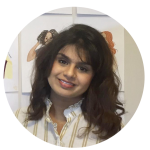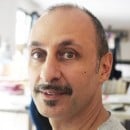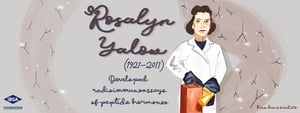Rosalyn Sussman Yalow was the sixth woman in the world to win the Nobel Prize in Science and the second woman to win the Nobel Prize in Medicine, after Gerty Cori.
In 1977 she was a joint recipient of the Nobel Prize for Medicine together with Roger Guillemin and Andrew Schally.
Rosalyn was awarded the prize for her discovery and development of the radioimmunoassay of protein hormones. An investigative tool that has enabled significant progress to be made in the fields of biology and experimental medicine, and is still a diagnostic technique widely used in clinical medicine.
Rosalyn’s story
I was excited about achieving a career in physics. My family, being more practical, thought the most desirable position for me would be as an elementary school teacher.
[Rosalyn Yalow]
Rosalyn was born in New York in 1921. Her father was a wholesaler of packaging materials and her mother a housewife. Neither of them had finished high-school, but did everything to ensure that their daughter had the opportunity to study.
At the end of the 1930s, when she was at college, Rosalyn became fascinated with physics, and in particular, nuclear physics. In January 1939, Rosalyn attended a lecture at Columbia University by Enrico Fermi, who was holding a conference on nuclear fission: a discovery that in the space of just a few years not only led to the terror of nuclear warfare, but also to the ready availability of radioisotopes for medical investigation and many other peaceful applications.
When she was admitted to the Physics Department of the University of Illinois in 1940, Rosalyn discovered that she was the only woman among its 400 members: the Dean of the Faculty congratulated her on her achievement and told her she was the first woman to go there since 1917.
In January 1950 Rosalyn decided to leave teaching and to work full-time at the Bronx VA Hospital in New York, where, for more than twenty years, she managed the radioisotope research laboratory together with physician Solomon Berson. Those who saw them work together were struck by the incredible professional alchemy between them, which bordered on telepathy: it often was the case that one of the two ‘would finish the sentence the other had started’.
Their collaboration led to outstanding scientific results: for the first time, Rosalyn Yalow and Solomon Berson developed RIA – Radio Immuno Assay – a diagnostic technique that is still used all over the world today.
In 1977 their discovery was awarded the Nobel Prize for Medicine and Rosalyn’s great regret was that she was not able to share it with her colleague, who died suddenly of a heart attack on 11 April 1972. Shortly afterwards, the laboratory in which the two scientists had worked for many years was named, at her request, in memory of Doctor Berson.
Even after receiving the Nobel Prize, Rosalyn continued at full capacity with her research, which led to the award of other prestigious acknowledgements: in 1988 she received the National Medal of Science, the highest honour reserved for US citizens who have made important contributions to science and technology.
She died in New York in 2011.
Her personality
As a woman, Rosalyn had to overcome many obstacles before being able to devote her life full-time to scientific research. However, being – in her own words – stubborn and single-minded since childhood, she did not give up and continued along the path she had chosen without a second thought.
Married to her colleague Aaron Yalow and a mother to two children, even after achieving success in her career, Rosalyn never stopped fighting against female discrimination. She strived for women to always be guaranteed equal opportunities in accessing education and was known to encourage young female students to pursue scientific careers.
When she was awarded the Nobel Prize, she said:
We cannot expect in the immediate future that all women who seek it will achieve full equality of opportunity. But if women are to start moving towards that goal, we must believe in ourselves or no one else will believe in us; we must match our aspirations with the competence, courage and determination to succeed; and we must feel a personal responsibility to ease the path for those who come afterwards.
[Rosalyn Yalow]
Her research
Her first investigations together with Doctor Solomon Berson concentrated on the application of radioisotopes in blood volume determination, clinical diagnosis of thyroid diseases and the kinetics of iodine metabolism. Rosalyn and Solomon extended these techniques to studies of the distribution of globin and hormones.
At that time insulin was the hormone most readily available in a highly purified form, and the two researchers developed a tool with the potential for measuring circulating insulin.
After several years’ work, they managed to transform the concept into the reality of its practical application to the measurement of plasmatic insulin in humans. The year 1959 thus marked the beginning of the era of radioimmunoassay (RIA), used from then on to measure hundreds of substances of biologic interest in thousands of laboratories all over the world.
Despite its huge commercial potential, Rosalyn and Solomon chose not to patent the technique, so that it could also be available in poorer countries.
During her extraordinary scientific career, Rosalyn became a mentor and reference point for scientists from around the world, who came to share her passion for investigative endocrinology research.
This is why she has been called the mother of endocrinology.
 Nina Chhita is the artist and illustrator of the Instagram account @nina.draws.scientists, which focuses on contemporary and historical trailblazing scientists, who happen to be women. She initially started the account as a way to discover historical figures, and as a scientist herself, naturally gravitated towards scientists. Articles have since been written about Nina in the BBC news and Mental Floss. Her illustrations have appeared on the social media sites of the University of Oxford, the University of Bath, Dementias Platform UK, and in a YouTube video by Vanessa Hill. She lives in Vancouver where she works as a medical writer creating educational content for healthcare professionals.
Nina Chhita is the artist and illustrator of the Instagram account @nina.draws.scientists, which focuses on contemporary and historical trailblazing scientists, who happen to be women. She initially started the account as a way to discover historical figures, and as a scientist herself, naturally gravitated towards scientists. Articles have since been written about Nina in the BBC news and Mental Floss. Her illustrations have appeared on the social media sites of the University of Oxford, the University of Bath, Dementias Platform UK, and in a YouTube video by Vanessa Hill. She lives in Vancouver where she works as a medical writer creating educational content for healthcare professionals.


